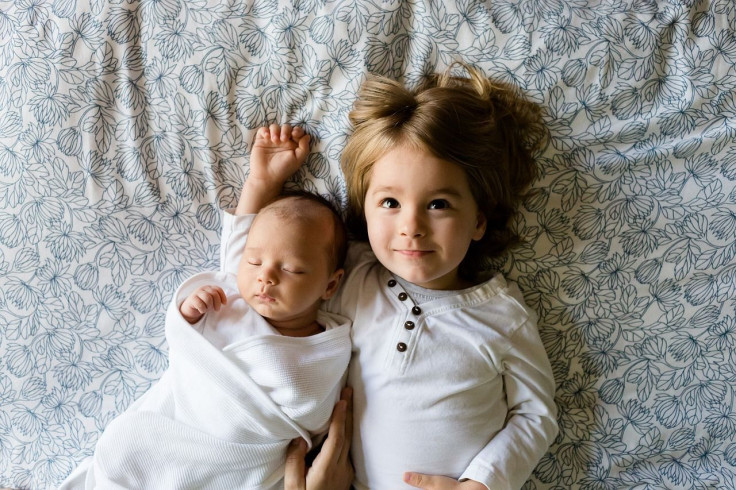Your Sibling Rivalry Can Influence Both Your Mental Health And Tendency To Take Risks

Your siblings likely surrounded you almost every hour of the day when you were little — sharing meals, rooms, field trips, and imaginary games. When we get older, however, sibling relationships tend to drift apart as each person goes their own way. But new research suggests that the type of relationship you have with your sibling may impact your mental health and tendency to take part in risky behavior, even well into later in life.
The research was conducted at the University of Missouri, and the study authors focused primarily on Mexican-origin families living in the U.S. They examined how sibling relationship quality affected young people’s depression and involvement in risky behaviors, including sexual risk-taking, by looking at data from 246 Mexican-origin families over several years. They watched certain pairs of siblings aged 12 to 15, then followed their depressive patterns and risky behaviors over the course of five to eight years.
What they found was interesting, although probably not too surprising. Older siblings who had good relationships with younger siblings were the least likely to be depressed, and they also took part in the least risky activities. Younger siblings with a negative relationship with an older, opposite-sex sibling, meanwhile, were more likely to engage in sexually risky scenarios. Siblings with good, solid relationships overall, were less likely to engage in risky behaviors — as though they were protected, in a way.
“Similar to work with European-American and African-American families, we found adolescents with sibling relationships characterized as positive or negative, and we also found a group that we labeled ‘affect-intense,’ because siblings in this group experienced moderate levels of intimacy and negativity,” said Sarah Killoren, assistant professor of human development and family science at the University of Missouri, in a press release.
The researchers did not, however, find an “uninvolved” group — characterized by low levels of intimacy and conflict — among the Mexican-origin siblings. It's possible this was due to cultural family values that emphasize interdependence.
Killoren believes that people with siblings learn how to interact with others based on how they behave with their siblings. “Siblings who are hostile and negative with one another will use that interaction style with their peers,” she said. “Most peers won’t respond well to hostility and negativity so these youth may be more likely to hang out with a deviant peer group and, in turn, engage in risky behaviors.”
Of course, the same can be said about adolescents basing relationships off their interaction with parents or other relatives as well. But the researchers believe this is one step toward better understanding the complexities in family dynamics. There are many more family factors involved in determining how an adolescent will interact with others later in life — or even go down certain paths. One recent study found that parents who compare children to their siblings can influence whether that child will succeed or fail.
At the end of the day, your sibling may be one of your best friends, despite conflicts. “The longest-lasting relationships individuals can have are with siblings,” Killoren said. “It’s important to develop and maintain close relationships in adolescence because they are important throughout the lifespan, especially after siblings lose parents and spouses.” Perhaps building that relationship with your sibling will not only benefit your family but also improve your mental health.
Source: Killoren S. Profiles of Sibling Relationship Quality: Links to Familism Values and Adjustment. International Journal of Behavioral Development. 2015.



























